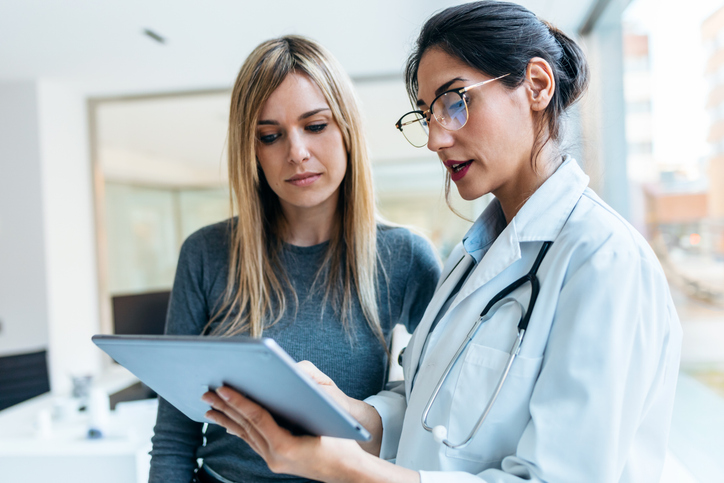
Resources and Support During Your Journey to Parenthood
Embarking on an egg donor cycle can be a complex and emotional journey for individuals and couples. Whether you're facing infertility challenges or other reproductive issues, the decision to pursue egg donation can bring a mix of hope, anxiety, and uncertainty. Fortunately, there are numerous resources available to support you through every step of this process. In this guide, we'll explore various resources – from medical professionals and support groups to financial assistance programs and educational materials – designed to empower and assist patients undergoing an egg donor cycle.
- Medical Professionals and Fertility Clinics
- Support Groups and Counseling Services
- Online Communities
- Financial Assistance Programs
- Donor Conceived Family Resources
- Educational Materials and Online Resources
- Legal Support and Guidance
1. Medical Professionals and Fertility Clinics

Seeking guidance from experienced medical professionals and reputable fertility clinics is crucial when embarking on an egg donor cycle. These professionals specialize in reproductive medicine and can provide personalized care and support throughout your journey. When selecting a fertility clinic, consider factors such as success rates, the expertise of the medical team, available services, and patient reviews.
For additional referrals, Egg Donor Connect offers a comprehensive list of top-rated fertility clinics with in-house egg donor programs and reputable external egg donor agencies that use our software.
2. Support Groups and Counseling Services

Dealing with the emotional complexities of infertility and egg donation can be challenging. Support groups and counseling services provide a safe space for individuals and couples to share their experiences, gain emotional support, and learn coping strategies. These resources offer:
- The Center for Family Building is a full-service counseling and consulting service offering donor and gestational carrier screening, counseling, and educational programs, the Building Your Family podcast, is available on YouTube and all of the audio platforms, and the Building Your Family Community is the only expert-led education and support program for people using donor conception, surrogacy and fertility treatment to build their family.
- Embra Health is a mental healthcare company dedicated to supporting family-building journeys by offering comprehensive evaluations for donors and carriers, consultations for intended parents, and a range of continuous support services to ensure emotional well-being throughout the process. Embra’s services have national and global reach, all while upholding the highest ethical standards in the industry.
- Resolve: Provides in-person support groups, online forums, and educational resources for people navigating all types of infertility and they host a specific group for Mothers of Donor Conceived Children Peer Group.
- Infertility Unfiltered is a combination of education, support and community for anyone experiencing infertility. They offer multiple different 4-6 week class series designed specifically for anyone exploring egg donation, embryo donation or sperm donation from the beginning stages of grief and acceptance all the way through parenting and supporting a donor conceived child. Classes are led by an Infertility Unfiltered instructor alongside credible guest speakers such as scientists, therapists, parents via donor conception and donor conceived people.
- Men Having Babies (MHB): Offers educational resources and support for gay men who are considering parenthood through assisted reproductive technologies, including egg donation. MHB provides guidance on various aspects of the family-building process, including legal and financial considerations, and fosters a supportive community for prospective and current parents.
- Society for Ethics in Egg Donation and Surrogacy (SEEDS): a nonprofit group composed of egg & embryo donor and surrogate agencies along with reproductive attorneys and fertility practitioners; created to help facilitate ethical business practices that ensures third-party reproduction remains a viable and obtainable family building option for present and future generations.
3. Online Communities

In addition to in-person support groups, online support communities offer a convenient and accessible way for individuals to connect with others undergoing similar experiences. These groups provide a platform for sharing stories, asking questions, and offering support. Some notable online support groups for individuals undergoing egg donation include:
- The Building Your Family Community : This is the only membership program crafted by a family-building expert, clinician, author, and researcher. This community provides exclusive support, stress reduction tools, and actionable strategies to help you make informed decisions, and feel calmer from preconception through parenthood.
- Parents via Egg Donation (PVED): Specifically geared towards individuals and couples who have built or are considering building their families through egg donation, PVED provides a supportive online community. Members can find resources, connect with others, and share their unique experiences navigating parenthood via egg donation. Parents via Egg Donation
- BabyCenter Community: Hosts a variety of forums and groups dedicated to fertility treatments, including egg donation. Participants can find support, ask questions, and share their experiences.
- FertilityIQ: Offers an online community where individuals can connect with others undergoing fertility treatments, including egg donation. Users can access reviews of fertility clinics, share treatment experiences, and seek advice from experts.
4. Financial Assistance Programs

The cost of fertility treatments, including egg donation, can be prohibitive for many individuals and couples. However, several financial assistance programs and resources are available to help alleviate the financial burden:
- Compassionate Care Program: Offered by some fertility clinics, this program provides discounts on fertility treatments, including egg donation, based on financial need.
- Grants and Scholarships: Organizations like the BabyQuest Foundation and the Tinina Q. Cade Foundation offer grants to assist with the cost of fertility treatments. Men Having Babies provides discounts and grants in conjunction with some of their partner fertility clinics and egg donor/surrogate agencies also. RESOLVE provides a detailed list of financial resources.
- Fertility Financing Programs: Many fertility clinics partner with financing companies, like CapexMD, to offer loans and payment plans specifically tailored to cover the cost of fertility treatments.
- Fertility Insurance Benefit Program: An increasing number of companies are recognizing the demand for employer-offered IVF insurance benefits through specialized companies such as Progyny, Maven and Carrot. It's worth consulting with your HR department to determine eligibility - and if this type of aid is not available, lobbying to include this important financial assistance.
5. Donor Conceived Family Resources

While it's critical to offer guidance for couples and individuals embarking on egg, embryo and sperm donation, there is an even higher priority to provide support to the donor-conceived person. With changing legislation and a push for greater transparency, the resources below help families foster important conversations around genetic origins and help create connections.
- EDC Nexus is a groundbreaking donor registry designed to support Intended Parents, Donors, and Donor-Conceived Persons—whether known or de-identified—through a private, HIPAA-compliant database. By providing ongoing medical and lifestyle updates, EDC Nexus promotes the health & well-being of each stakeholder involved in this family-building journey.
- Donor Conceived Community is a 501(c)3 dedicated to making a better world for donor-conceived people (DCP). DCC promotes the well-being of DCP by providing support, education, and resources for DCP, parents, donors, and the professionals who work with them. DCC hosts peer support groups by and for people navigating donor conception.
- The U.S. Donor Conceived Council: The USDCC is an advocacy group that educates on the needs and interests of donor conceived people and provides resources for donors, intended parents, and others. Advocating for change begins with educating the public about where change is needed and why change is necessary.
6. Educational Materials and Online Resources:

Understanding the egg donation process, potential risks, and legal considerations is essential for making informed decisions. Fortunately, there are abundant educational materials and online resources available:
- American Society for Reproductive Medicine (ASRM): Offers educational materials, fact sheets, and guidelines on various fertility treatments, including egg donation.
- Creating a Family: A nonprofit organization that provides educational resources, podcasts, and webinars on infertility, third party reproduction, adoption, and foster care.
- Books and Publications: There are many books written by fertility specialists and individuals who have undergone egg donation, offering insights and guidance for those considering the process. We put together a list of book recommendations for intended parents and donor-conceived families.
7. Legal Support and Guidance:

Egg donation involves complex legal considerations, including contracts between donors, recipients, and fertility clinics, as well as parental rights and responsibilities. Seeking legal support and guidance can help ensure that all parties understand their rights and obligations:
- Fertility Law Attorneys: Specialize in reproductive law and can provide legal guidance on egg donation contracts, parental rights, and other legal aspects of the process. The Academy of Adoption and Assisted Reproduction Attorneys provides a list of attorneys by state.
- Legal Advocacy Organizations: Organizations like RESOLVE and the American Bar Association's Section of Family Law offer resources and information on reproductive legal issues.
Undertaking on an egg donor cycle can be both challenging and rewarding. However, with the right resources and support systems in place, individuals and couples can navigate this journey with confidence and resilience. Whether seeking medical guidance, emotional support, financial assistance, educational materials, or legal advice, there are numerous resources available to help patients undergoing an egg donor cycle every step of the way. By leveraging these resources, individuals and couples can empower themselves to make informed decisions and achieve their dreams of building a family.
Jenna Lake
Jenna Lake is co-founder of EDC Nexus, a unique registry developed to support Intended Parents, Egg Donors and Donor-Conceived Offspring — identified or de-identified — through a private online database providing medical updates and a mode of communication.
Jenna is the proud mother to a teenage, egg donor-conceived son. Her journey through third party reproduction directly launched a 15+ year career overseeing one of the largest clinic-led egg donor programs in the United States. After matching more than 3,000 cycles, and witnessing the ever-increasing demand for donor-conceived families to connect with their genetic and biological stories (and donors to stay informed of their contribution), Jenna helped to create a secure means of exchanging vital information and ensuring greater peace-of-mind on many fronts.
Currently, Jenna also serves as Operations Director at Egg Donor Connect. She is a past board member of Parents via Egg Donation, former consultant for a surrogate agency, and the author of several articles focusing on Egg Donors and Intended Parents. Jenna can be reached through her LinkedIn profile, or via email at jenna@eggdonorconnect.com.
Looking for a wide selection of egg donors?
Visit our directory of the best egg donor clinics & agencies in the U.S.